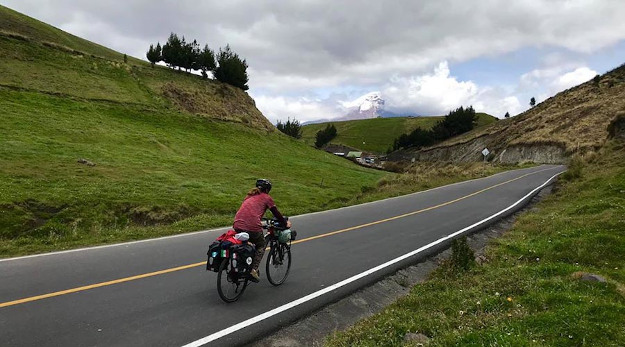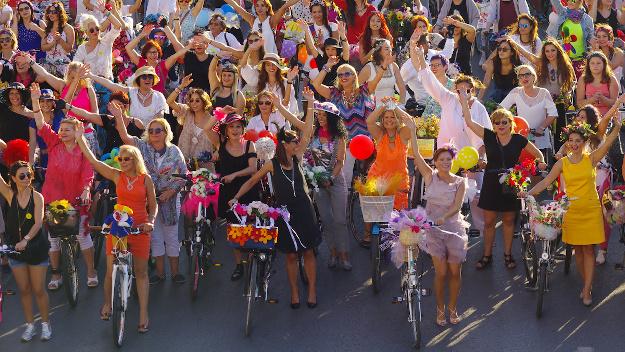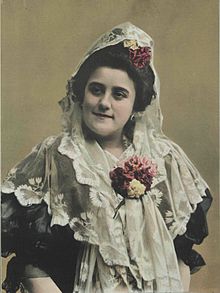Annie Londonderry was the first woman to bicycle around the world. In reality, her name was Annie Cohen Kopchovsky, but the Londonderry surname came from her first sponsor The Londonderry Lithia Spring Water Company of Nashua, New Hampshire. The New York World declared her trip from 1894 to 1985 as “the most extraordinary journey ever undertaken by a woman”. And she did it as a mother of three children under the age of six. This fact turned every Victorian motion of female property of its ear and was controversial.
She came to the United States of America at the age of five with her parents and two older siblings from what is now Latvia and settled in Boston old West End.
She started her journey on June 25, 1894, when she stood before a crowd of about 500 friends, family, suffragists and curious onlookers at the Massachusetts State House. Going a step further, the trip was set not only to circle the Earth, but also earn $5,000 in route. If she reached these two targets, she would win a $10,000 prize. Imagine the incredible money sum in the 1890s. Thanks to her physical endurance and mental attitude, she rode the planned trip on a man’s bicycle attired in a man’s riding suit. She earned the $5,000 by selling photographs of herself, appearing as an attraction in stores and showing her body and bicycle to advertisers. You can see some of her photographs here. Her trip was so outstanding that the SPIN musical opened in Toronto, Canada, in March 2011 to critical acclaim. In August 2022 another musical inspired by Annie took place at London’s Charing Cross Theater also to critical acclaim.
As Susan B. Anthony claimed, “Bicycling has done more to emancipate women than anything else in the world”.





